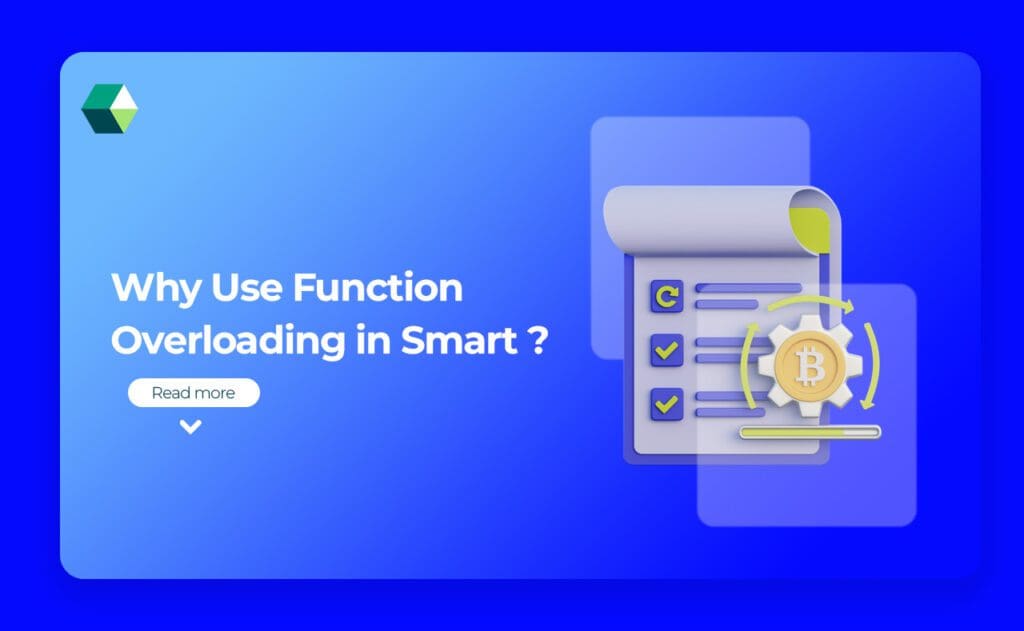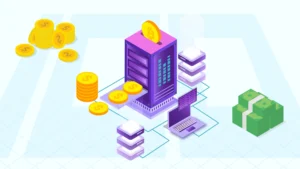
Smart contracts are the backbone of many blockchain applications, enabling automatic and secure transactions. One useful feature in programming smart contracts is function overloading. This technique makes your code more flexible and organized. Let’s dive into why function overloading is so beneficial and how smart contract development can help you make the most of it.
What Are Overloading Functions in Smart Contracts?
function-overloading-in-smart-contracts refers to the ability to have multiple functions with the same name but different parameter lists within the same contract. This concept is common in programming languages like Solidity, which is used to write smart contracts on the ethereum blockchain. In Solidity, function overloading allows developers to define several versions of a function, each performing a similar operation but with different inputs. This makes the contract more flexible and easier to use, as the same function name can handle different types of data.
Advantages of Function Overloading in Smart Contracts
-
Code Clarity and Simplicity
Overloading helps maintain code clarity and simplicity. By using the same function name for different purposes, the code becomes more intuitive and readable. Developers can manage similar operations under one name, reducing the complexity of the contract.
-
Enhanced Flexibility
Function overloading adds flexibility to smart contract development . It allows developers to create functions that can handle various data types or different numbers of arguments. This means that a single function can be used in multiple contexts, improving the contract’s adaptability.
-
Ease of Use
Overloading makes interacting with the contract easier for users. They don’t need to remember different function names for similar operations. Instead, they can use a single function name with different parameters to achieve their goals.
-
Code Reusability
By defining multiple versions of a function, developers can reuse code efficiently. This reduces redundancy and ensures that changes to the function’s logic are applied consistently across all overloaded versions.
Function Overloading Useful in Smart Contract Development
Function overloading is very useful in smart contract development because it makes your code more flexible and easier to use. Instead of creating multiple functions with different names for similar tasks, you can use one function name and handle different kinds of inputs. For example, you might have a function called transfer that can handle both sending different amounts of tokens and checking balances, all based on the input you provide. This approach is especially beneficial when implementing payable functions , allowing contracts to handle different payment scenarios efficiently.
This means you don’t have to remember or manage multiple function names, making the contract simpler and cleaner. Additionally, it allows developers to write more adaptable code, as they can easily add new features or update existing ones without disrupting the current functions. Overall, function overloading helps in creating smart contracts that are more efficient, user-friendly, and easier to maintain.
Different Types of Function Overloading
-
Parameter Overloading
This is the most common type of overloading. It means you can have multiple functions with the same name, but they do different things based on the number or type of inputs you give them. For example, you might have one function named send that can handle sending money in different ways:
send(address recipient, uint256 amount) — Sends a specific amount of money to a given address.send(address recipient) — Sends a default amount of money to a given address. -
Return Type Overloading
Some programming languages allow you to overload functions based on what they return, but this doesn’t work in Solidity (the language used for smart contracts). In Solidity, you can’t use return types to differentiate functions. You focus on changing the inputs instead.
-
Visibility Overloading
This is about having functions with the same name but different access levels, like who can use them:
transfer(address recipient, uint256 amount) public — Anyone can use this function.transfer(address recipient, uint256 amount) internal — Only the contract itself can use this function. -
Modifiers-Based Overloading
While not true overloading, you can use special conditions (called modifiers) to change how a function works based on certain rules. For example:
transfer(address recipient, uint256 amount) public onlyOwner — This function can only be used by the owner of the contract.
Function Overloading Helps Smart Contract Development Companies
Function overloading is very helpful for smart contract development companies because it makes coding simpler and more efficient. By allowing multiple functions with the same name but different inputs, developers can write cleaner and more organized code. This means they don’t have to create and manage many different function names for similar tasks, which reduces confusion and mistakes. It also makes the contract more flexible, as developers can easily handle different types of data or operations with a single function name. This ease of use can speed up development, make the contract easier to maintain, and improve the overall quality of the code. For companies, this means they can build better smart contracts more quickly and efficiently.
Why is Nadcab Labs the Best Choice for Function Overloading?
Nadcab Labs is the best choice for function overloading because they have a lot of experience and expertise in smart contract development. They understand how to use function overloading effectively to make your smart contracts more flexible and user-friendly. With Nadcab Labs, you get high-quality coding that keeps your smart contracts clean and easy to manage. They also provide tailored solutions to meet your specific needs, ensuring that your functions work exactly the way you want. Plus, their team focuses on creating secure and efficient contracts, so you can trust that your code will be both reliable and cost-effective. Overall, Nadcab Labs combines skill, experience, and personalized support to handle function overloading expertly.






